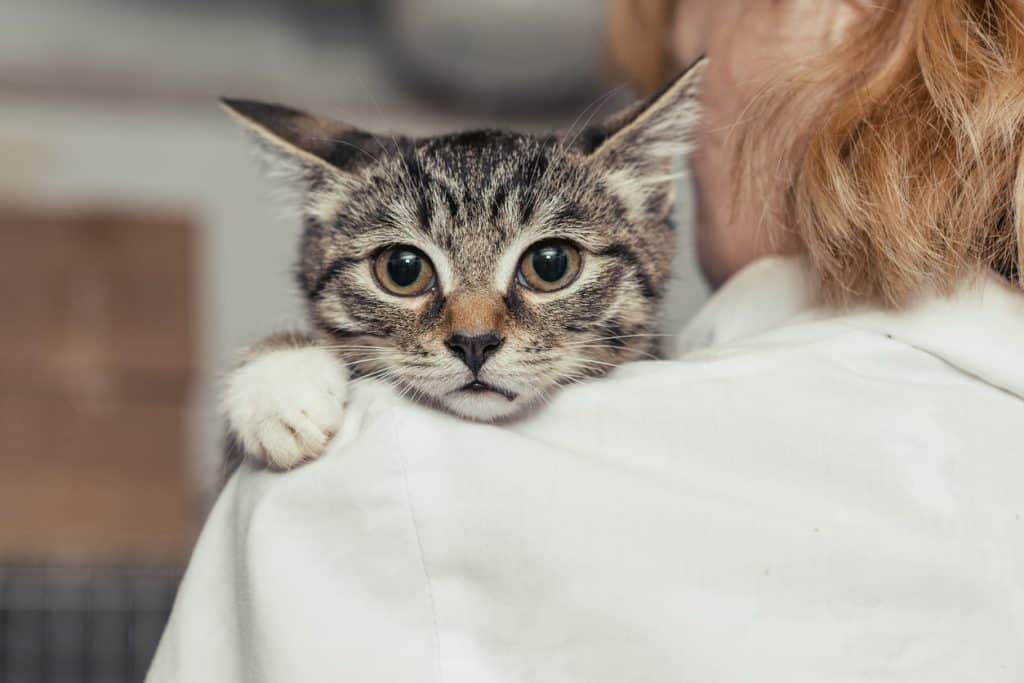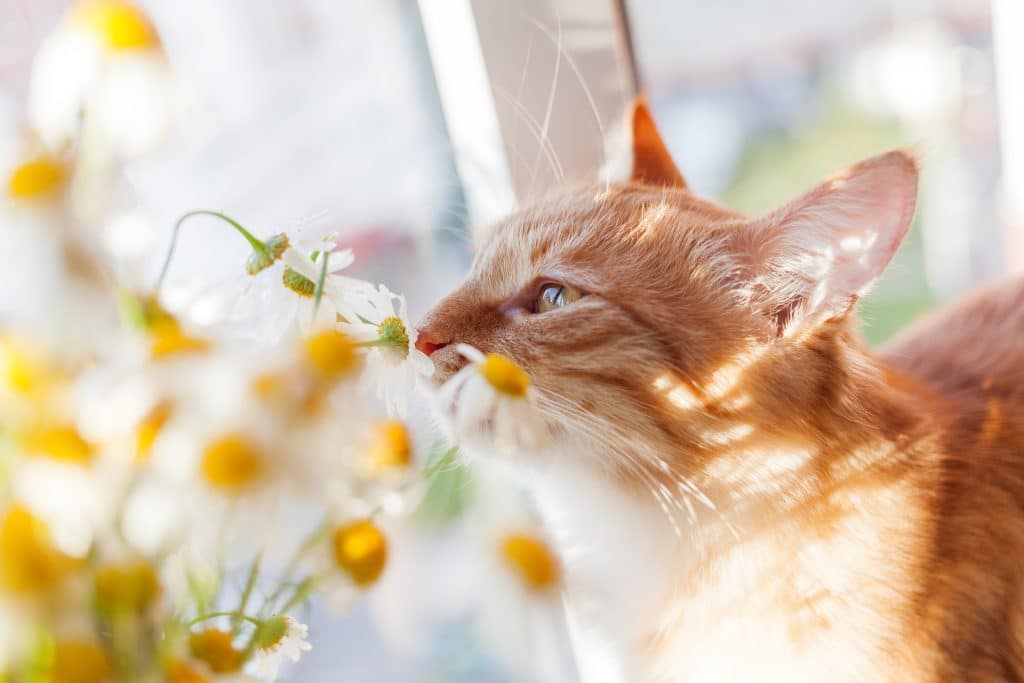Essential oils are more popular than ever these days. We see them in shampoos, hand sanitisers, air fresheners, and every variety of cosmetics. With the rise in popularity, many pet parents are curious about using these aromatic oils with their pets, but aren’t sure whether it’s a good idea. So, what—if any—essential oils are safe for cats? The answer is complex but, in short, using essential oils around cats without veterinary advice should be avoided.
What’s The Risk Of Using Essential Oils With Cats?

iStock/Okssi68
Using essential oils with cats carries some important risks, and there are larger concerns with cats than with dogs. “Dogs are also potentially sensitive to the toxic effects of essential oils, but cats are more sensitive,” explains Dr Patrick Mahaney, a holistic veterinarian in Los Angeles, USA.
There are a couple of important reasons for this. The first is that cats are fastidious groomers. They lick off anything that sticks to their fur or skin, and this puts them at increased risk for overexposure to essential oils that are applied topically. “All the feline cases I have seen, or of which I have been made aware, have been related to cats orally ingesting essential oils after the oil has been applied to their skin surface,” Dr Mahaney explains.
Once cats ingest an essential oil, they can have a bad reaction to a particularly dangerous component found in many essential oils: phenols. Phenols are molecules that give many essential oils their distinct aromas. These include thymol, found in thyme and oregano, which is a powerful anti-microbial, and eugenol, found in cinnamon and cloves, that is widely used as a dental anaesthetic and antiseptic.
Phenols are particularly dangerous for cats because they don’t produce the proper enzymes to break them down. This same class of enzymes is also responsible for breaking down (metabolising) aspirin, acetaminophen, and Rimadyl—all drugs commonly prescribed for dogs and humans, but not for cats. “Reduced metabolism can lead to a build-up of toxic metabolites that negatively impact liver and whole-body health,” Dr Mahaney says. In other words, cats can easily be overwhelmed by exposure to phenols and related compounds and can suffer toxic effects as a result.
Dr Mahaney lists these clinical signs of oral exposure to essential oils:
- salivation
- vomiting
- stool changes
- reduced appetite and water consumption
- lethargy
According to the USA’s Pet Poison Helpline, cats can also develop symptoms of respiratory distress when they are exposed to essential oils in the air. This is most common when essential oils are used in the type of diffuser that creates microdroplets of oil, such as nebulising or ultrasonic diffusers. This was the case in the 2018 story of a cat getting ill when her owner used eucalyptus oil to treat a head cold. “If a cat already has asthma or another respiratory ailment, then inhaling essential oils could worsen the condition,” Dr Mahaney warns.
Symptoms of respiratory distress caused by inhalation of essential oils include:
- watery nose or eyes
- coughing
- lethargy
- nausea leading to drooling and/or vomiting
- difficulty breathing (laboured breathing, fast breathing, panting, coughing, or wheezing)
If you are concerned that your cat might be having symptoms of illness related to essential oils, contact your vet or the paid-for emergency Animal Poison Line for advice.
Is It Ever Ok To Use Essential Oils With Cats?
If you’d like to try using essential oils to enhance your cat’s health and wellness, Dr Mahaney has some advice for you. “I always recommend that if owners are contemplating the use of essential oils for cats, they seek consultation with a veterinarian having appropriate training and experience. Holistic veterinarians are generally more inclined to have such training.”
In addition to a holistic vet, your own family veterinarian is also a perfectly suitable go-to for all questions related to essential oils and cats.
Avoid These Essential Oils For Your Cat’s Safety

Image credit: Aksenovko | iStock
In general, based on the current consensus from sources such as the USA’s ASPCA, veterinary schools, and professional associations such as the Canadian Veterinary Medical Association, in general, we do not advise using essential oils on or around cats, unless explicitly recommended by your veterinarian.
These essential oils include, but are not limited to:
- basil
- citrus oils (bergamot, grapefruit, lemon, lime, orange, tangerine)
- birch
- cheer
- cinnamon
- clary sage
- clove
- cypress
- dill
- douglas fir
- eucalyptus
- fennel
- green mandarin
- melaleuca (Tea Tree)
- oregano
- pennyroyal
- peppermint
- pettigrain
- roman chamomile
- sweet birch
- thyme
- rosemary
- spearmint
- white fir
- wintergreen
- vetiver
- ylang ylang
In Conclusion
To wrap things up: don’t try essential oils out on cats at home without explicit veterinary guidance.
They might smell nice and be perfectly fine for humans, but essential oils are not worth the risk to your cat’s health!
Further Reading
- Cat Hairballs: How to Prevent and Treat Them in Your Cat
- How to Choose the Perfect Cat Name
- Pet Safe Cleaning: Non-toxic Methods
For more about safety and the use of essential oils with dogs, Kristen Leigh Bell’s book Holistic Aromatherapy for Animals is an excellent and well-regarded guide.



